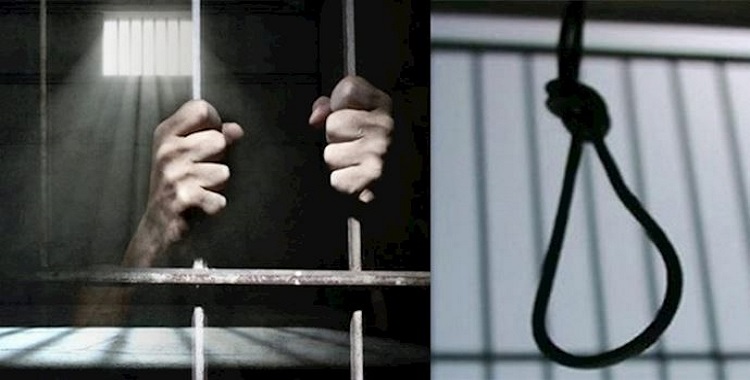Forced TV Confessions: Another Sign of Iran Regime’s Systematic Human Rights Violations

Forced TV Confessions: Another Sign of Iran Regime’s Systematic Human Rights Violations
Written by
Shahriar Kia
Following an international campaign to stop Navid Afkari’s execution, a protester arrested in 2018, the Iranian regime aired his forced confessions once again on Monday.
Broadcasting forced TV confessions shows the mullahs’ intention to execute Navid and is a sign of the mullahs’ systematic human rights violations.
Navid Afkari – Vahid Afkari
Navid Afkari Sangari, 27, is a wrestling champion. He was arrested in 2018, along with his two brothers. Following months of horrific tortures, and following a televised confession, Navid was sentenced to two times executions.
In a letter from prison, Navid wrote: “For around 50 days I had to endure the most horrendous physical and psychological tortures. They would beat me with sticks and batons, hitting my arms, legs, abdomen and back. They would place a plastic bag on my head and torture me until I suffocated to the very brink of death. They also poured alcohol into my nose.”
In a similar development, the Iranian regime executed Mostafa Salehi, a protester arrested in 2018 in the city of Isfahan on August 5. Mostafa was subjected to vicious tortures to confess to killing a security force. A source close to Mostafa Salehi’s family said: “Mostafa’s hand and both legs had been broken during interrogations. Agents also used needles to puncture under his nails. The tortures were so severe that his neck and spinal cord became injured.”

Iran: Mullahs’ judiciary admits arrest of Amir Hossein Moradi and Ali Younesi, Sharif University of Technology elite students
Al Younesi-Amirhossein Moradi
In addition, two political prisoners, Ali Younesi and Amir Hossain Moradi, two elite students arrested in April, are now under pressure to make forced confessions on TV. In this regard, sister of Ali Younesi, on Saturday wrote on Twitter: “On Wednesday (September 2), my brother Ali Younesi was told to accept the charges against him in a televised confession, and in which case he will receive a life sentence instead of the death penalty. After five months of detention, solitary confinement, and public interrogation, they have been insisting for a TV interview, by threatening and pressuring (him) for the past three weeks.”
The Iranian regime has been using torture and systematic ill-treatment for the past four decades against political prisoners. Amnesty International published a shocking report, “Trampled Humanity,” on September 2, confirming the regime’s use of severe torture particularly against those detained during two nationwide Iran protests in 2018 and November 2019.
According to this report, the Iranian regime has been using “widespread torture including beatings, floggings, electric shocks, stress positions, mock executions, waterboarding, sexual violence, forced administration of chemical substances, and deprivation of medical care,” to put pressure on thousands of protesters arrested during the November 2019 uprising.
The November 2019 major Iran protests rattled the Iranian regime’s foundation. The regime’s supreme leader Ali Khamenei ordered his forces to “do whatever they can,” and oppress the protesters. More than 1500 protesters were killed, and thousands were arrested.
In a desperate attempt to quell the restive Iranian society, the regime has increased its oppressive measures. Having failed in executing three protesters, following a massive international campaign on social media, the mullahs are now trying to use executions as a show of power. In this regard, the state-run Mostaghel daily on Wednesday wrote: “The sympathy and harmony of the society with the executed people and the awakening of their sense of compassion towards these selected [victims] by the ruling system are signs of the widening rift between the society and the government. As much as the government carries out executions coldly, society views these executions as violent and protests them.”

The international community’s failure in holding the Iranian regime to account for its past crimes has emboldened the mullahs to kill and oppress any voice of dissent. A clear example is the 1988 massacre of political prisoners, a crime that has gone unpunished for 32 years. More than 30,000 political prisoners, mostly members and supporters of the People’s Mojahedin Organization of Iran (PMOI/MEK), were executed in a matter of few months. These executions were carried out following short and unfair trials by so-called “Death Commissions.”
The perpetrators of this crime now hold top positions in the regime. They include Ebrahim Raisi, head of the regime’s Judiciary, and Alireza Avaei, current Justice Minister.
The recent report by Amnesty International and having two criminals at the highest legal and judicial level show the regime has never changed course regarding human rights violations. In this regard, the international community bears a responsibility to hold the mullahs to account for their past and current crimes.
As the Iranian Resistance has repeatedly said, the United Nations Security Council and its member states, the Secretary-General, the High Commissioner for Human Rights, and Human Rights Council, as well as the European Union, must condemn the continuing torture and crimes against humanity in Iran. They must take urgent action to secure the release of detained protesters and political prisoners and dispatch an international commission of inquiry to visit the regime’s prisons.

